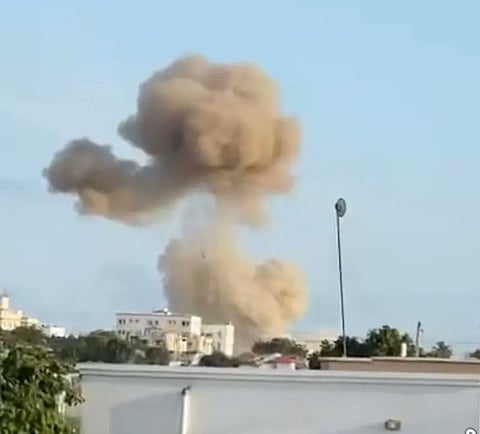

Somali government forces successfully repelled an attack by al-Shabab militants on a high-security prison in Mogadishu, killing all seven assailants during an intense gun battle.
The assault targeted Godka Jilow, an underground facility holding al-Shabab fighters, and marked the largest such incident in the capital in recent months.
Attackers initiated the operation with a car bomb explosion, followed by heavy gunfire and further blasts that echoed through the city.
Three security personnel lost their lives while countering the threat.
The militants, affiliated with al-Qaeda, donned military uniforms and used vehicles mimicking those of security forces to bypass checkpoints.
This deception allowed them to breach the fortified site near the presidential palace.
Al-Shabab claimed the attack aimed to free its imprisoned members.
A security official reported hearing a huge blast at the cell gate, triggering immediate exchanges of fire, with reinforcements deployed to neutralize the intruders.
The raid occurred hours after the government reopened dozens of roads in Mogadishu for the first time in over a decade, citing enhanced security.
Prime Minister Hamza Barre highlighted visible improvements, with local footage showing dismantled checkpoints.
However, the prison's location in one of the capital's most secure zones underscores vulnerabilities despite these measures.
Mogadishu remains heavily fortified with troops and checkpoints, yet the breach raises questions about defenses.
Al-Shabab has battled Somalia's federal government since 2007, controlling swaths of southern and central regions.
Recent offensives reversed government advances, capturing towns like Adan Yabaal, a key logistical hub.
Amid military setbacks, national security adviser Hassan Sheikh Ali resigned in July under unclear circumstances.
Fighting displaced nearly 60,000 people in the Middle Shabelle region between January and July.
The group attempted to assassinate President Hassan Sheikh Mohamud in March, with the perpetrator later killed by intelligence services.
A period of relative calm followed in the capital, attributed to bolstered measures.
Security expert Samira Gaid noted a disparity between official assessments and ground realities, suggesting al-Shabab strategically times its strikes.